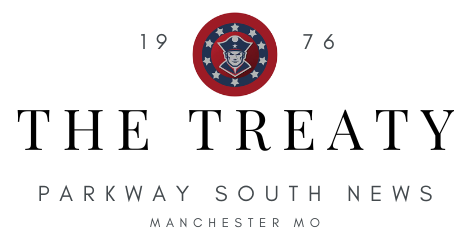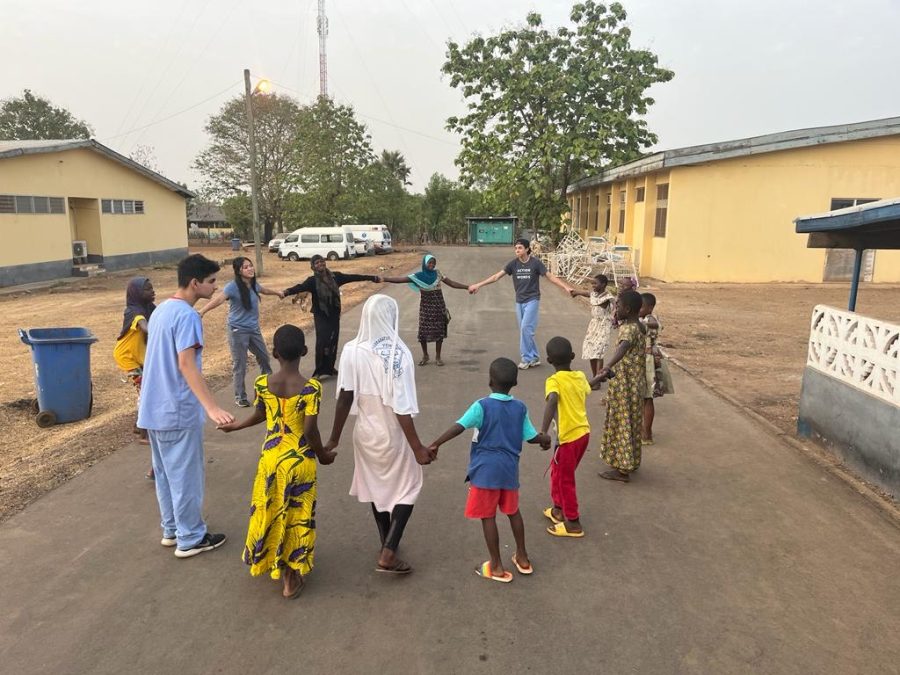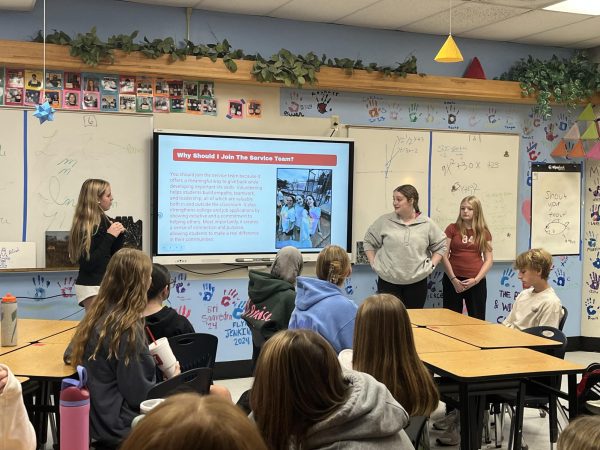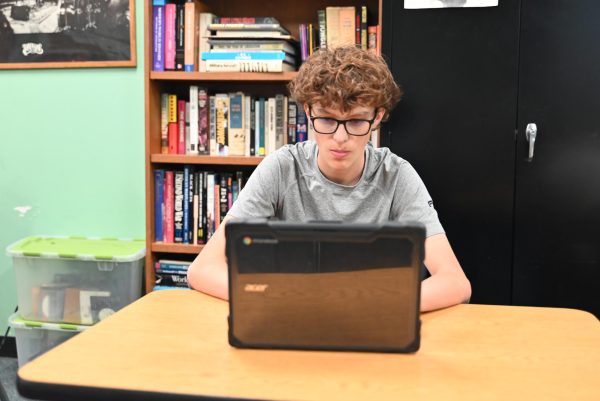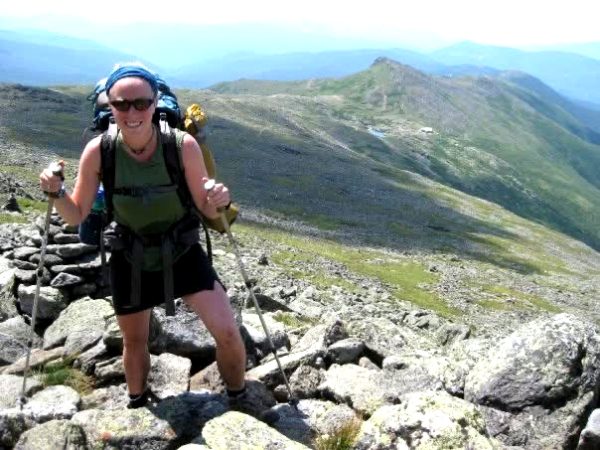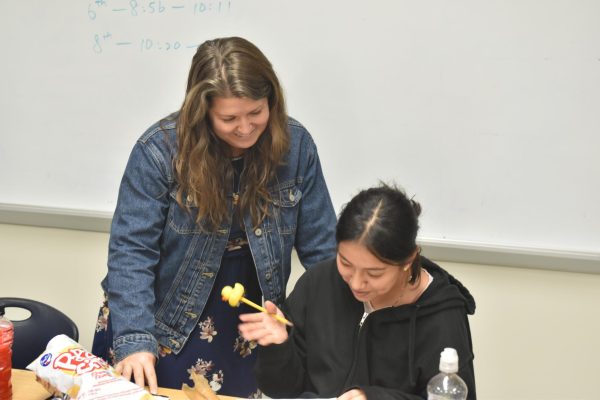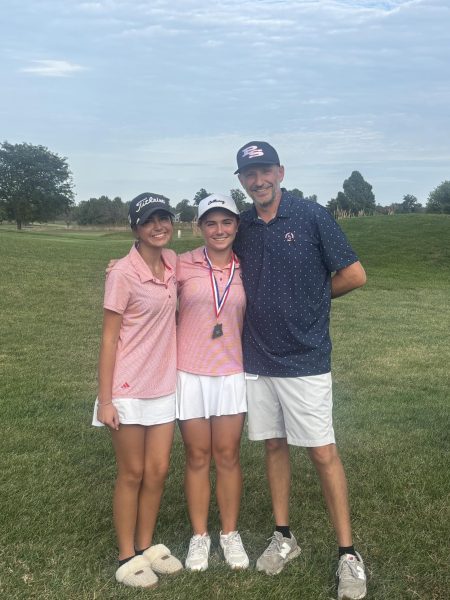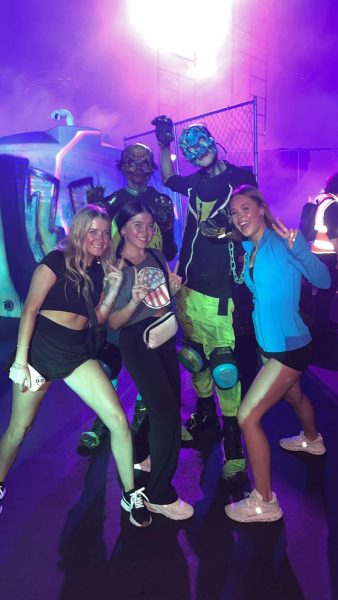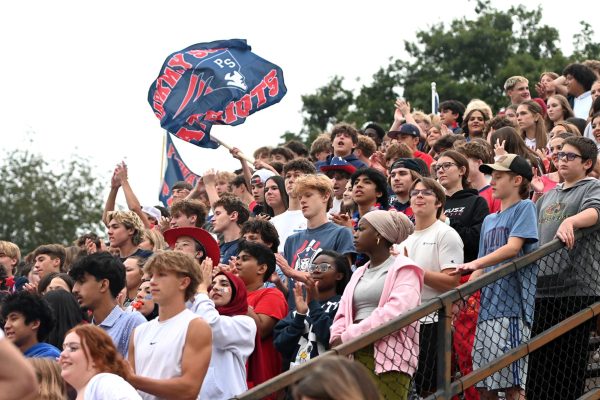‘Power’ful Patriot
Freshman Sameer Power has unique experience in Africa
Freshman Sameer Power holds hands with children in Ghana while on a medical mission trip.
In March, while every other South student was in class, freshman Sameer Power was thousands of miles away, assisting in surgeries in Ghana.
On March 4, Power went on a medical mission trip to Ghana through a local church. Power’s mom is a nurse anesthetist who knew coworkers going on this trip, and upon his mother asking him if he wanted to join her, Power and his mom applied to go in August 2021. However, Power said that his mom has been wanting to help people overseas for years, even before he was born.
“My mom has wanted to go for 15 years, but then she got pregnant with me, so she waited until I was old enough to go,” he said. “She asked me around 3 years ago if I wanted to go.”
Power was in Ghana for one week but only worked with patients for four days. Nonetheless, there was a lot that was done in those four days.
“We helped and assisted cases, talked to patients who were being operated on, and talked to patients to tell them they were going to be operated on. We also assisted with surgeries,” he said. “When we got there we taught the workers there how to do certain things so they could sustain on their own.”
Power also discussed the differences he noticed between Ghana and the United States.
“One of the biggest differences I saw was that in the village they lived in small huts. You would think they would be sad but they were content,” he said.
Power also touched on how the people dealt with loss.
“They take loss normally. Two deaths happened. A woman gave birth to two twins and her lung was filled with water. The family wasn’t phased. There was also a stillborn baby. The mom wasn’t phased,” he said.
Additionally, Power experienced a lot of cultural differences in Ghana.
“A lot of the clothes they wore were very colorful, like red, green, and yellow,” he said.
Power also described how the villagers marched up and down the city after a birth and played music.
Along with the difference in culture, Power learned a lot of lessons from his trip.
“I learned to not take everything for granted like air conditioning and water. When you washed your arms you had to have someone hold a bucket of water,” he said.
Power also explained how every night he would sleep “in a bucket of sweat” and that when they were doing operations, the power would turn off in the middle of surgeries.
“It happened five times a day,” he said.
However, there were a few similarities between Ghana and America that Power noticed.
“Sometimes people would use the same slang,” he said.
Power also explained how most of the patients could speak different languages, and that they taught him a few words of their own. Some of these words were “ae” which means “come,” and “bra” which means “sit down.”
On the other hand, despite the challenges he faced, Power felt like he had gotten a lot done in Ghana.
“I say we did a lot. People (native workers) learned a lot and would take on cases by themselves,” he said.
Power also explained how he worked on 68 cases in four days with just 11 medical workers and 3 teenagers to help out. There were only two operating rooms.
Additionally, Power was faced with the challenge of seeing someone pass away for the first time. While a woman was dying, Power said he “had to get equipment while the doctors were coding her.”
Nonetheless, there were some lighter moments amongst all the work and hardships. Power wasn’t the only one of his age on the trip. There were two juniors and one senior. One was from Tenessee and another from St. Dominic’s High School. Together, they made a lot of friends.
“We taught kids how to fist bump,” he said.
However, Power didn’t only make friends with the kids.
“I made friends with basically everyone, doctors too. The doctors were watching Frozen,” he said.
Furthermore, Power had a lot of supporters on the trip.
“My biggest supporter was my mom. I also worked with a doctor who wanted to work with me. She had very long cases and I would be standing for four hours,” he said.
Additionally, Power had a lot of favorite moments. He explained how one of his favorite moments was how he could connect with the people there because the village was Muslim. He would go to the Masjid for prayer and one time he got to lead the congregation.
Another memorable moment for Power was when he got to help a man who loved to play soccer but had a mass on his toe.
“We removed the mass and after he sang Justin Beiber and played soccer with the kids,” he said.
Consequently, with all the medical work Power completed in Ghana, he expressed how he has an interest in pursuing a medical career in the future.
“Most likely I want to do something with anesthetics,” he said.
In addition to Power’s passions, he got to experiment with anesthetics a few times.
“My mom gave me anesthetics that I injected into a person’s spine,” he said.
Along with his interest in medicine, Power is also interested in going on more similar mission trips in the future.
“I would definitely go back next year because it’s an annual trip. My mom was also looking into Muslim mission trips like to Syria and Palestine,” he said.
Overall, Power made it clear that he wouldn’t trade this trip for anything. However, while there were so many amazing things in Ghana, Power had one thing that he missed the most.
“I miss the friends,” he said.
